“I never thought that a mouse could have salmonella. It just never entered my mind.”
So says Steve Gilfillan, 51, a deputy sheriff in Council Bluffs, Iowa, who, according to the New York Times this morning, keeps “a couple hundred” garter  snakes in several neat rows of roomy enclosures in his basement. The snakes, he said, are like part of the family, which leads to a certain familiarity.
snakes in several neat rows of roomy enclosures in his basement. The snakes, he said, are like part of the family, which leads to a certain familiarity.
“As far as precautions, I don’t know,” said Mr. Gilfillan, adding his three children helped feed and care for his pets. “Snakes got to eat and snakes got to poop and you got to clean it up. It’s just the nature of keeping them.”
More than 400 people, many of them snake owners or their children, in the United States and Britain, have been sickened by salmonella outbreaks, all traced to frozen mice sold over the Internet as food for exotic pets by a small Georgia company called MiceDirect.
The company announced this week a recall involving millions of frozen mice and said that it would begin irradiating future shipments to kill infectious bacteria.
MiceDirect also recalled frozen rats and baby chickens used as pet food by reptile fanciers, although those products had not been linked to the salmonella outbreaks.
Health officials said that owners of reptiles should be mindful that such pets, including snakes and turtles, often carry salmonella and have been the cause of outbreaks in the past. Rodents carry similar risks, whether kept as pets or used as food for other animals.
Snakes can become infected after eating tainted mice, although the snakes may show no signs of illness, said Dr. Casey Barton Behravesh, a veterinarian and epidemiologist with the Centers for Disease Control and Prevention. Snake owners can become sick from handling the frozen or thawed mice, handling infected snakes or cleaning feces from an enclosure.
 Mr. Gilfillan and many other snake owners thaw mice to serving temperature in warm water. Dr. Barton Behravesh said people should not use a microwave oven, because the bacteria could spread to other food.
Mr. Gilfillan and many other snake owners thaw mice to serving temperature in warm water. Dr. Barton Behravesh said people should not use a microwave oven, because the bacteria could spread to other food.
She also said that mice and reptiles should be kept out of the kitchen and away from areas where food is served. Reptile cages should not be cleaned in the kitchen sink, she said, and mice should not be kept in a freezer with food for humans.
And she said that reptile owners should wash their hands thoroughly after handling their pets or the rodents the pets eat.
The first salmonella outbreak linked to MiceDirect began in Great Britain in August 2008. Since then, more than 400 people have fallen ill there, about two-thirds of them have been children under 10, according to Chris Lane, a senior epidemiologist of the Health Protection Agency’s Center for Infections in London. Although the shipments of tainted mice were halted last year, people continue to get sick there, Mr. Lane said.
The first case in the United States appeared in January 2010, according Dr. Barton Behravesh. The C.D.C. has identified more than 30 cases in 17 states with the same strain as the British outbreak. She said the cases were not concentrated in one region but spread across the country. Half the victims were under 12.
Accounts from both sides of the Atlantic suggest that American authorities were slow to react to indications of a problem.
British investigators looking into the outbreak found that many of the victims came from families where snakes were kept as pets. They eventually began looking at the frozen mice fed to the snakes and found shipments from MiceDirect that contained the same strain of salmonella as that isolated from the victims.
British officials contacted MiceDirect, Mr. Lane said, and the company promised to act to prevent further contamination.
On July 21, 2010, the F.D.A. told the company that tests of its products and plant had found salmonella. Two days later, the agency said, MiceDirect agreed to a recall.
But the recall effort has been haphazard. The company’s recall notice was not prominently posted on its Web site until Thursday. And neither the company’s site nor the F.D.A.’s site gave clear instructions on what to do with mice that customers still had.

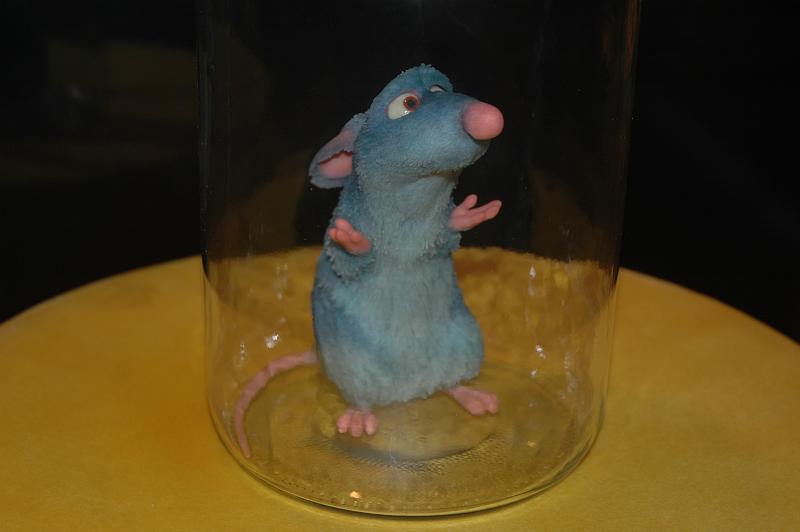 Press Association reports
Press Association reports 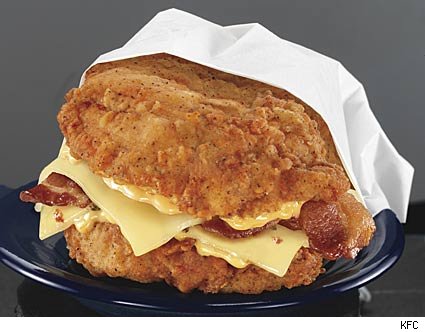 As a reminder,
As a reminder, 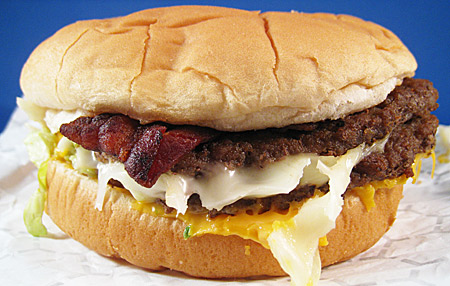 Six Smith County restaurants were hit with the most serious violations in the latest inspection period by East Texas health departments, including Spring Creek Barbque at 5810 South Broadway in Tyler. Cooked brisket had to be thrown out, chipped plates and a cutting board needed replacing, gaining them a total of 18 demerits.
Six Smith County restaurants were hit with the most serious violations in the latest inspection period by East Texas health departments, including Spring Creek Barbque at 5810 South Broadway in Tyler. Cooked brisket had to be thrown out, chipped plates and a cutting board needed replacing, gaining them a total of 18 demerits.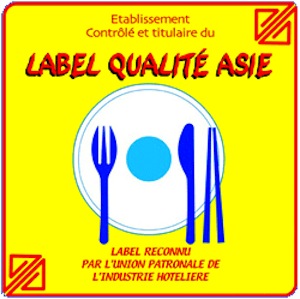 That’s exactly what was found as the kitchens at
That’s exactly what was found as the kitchens at 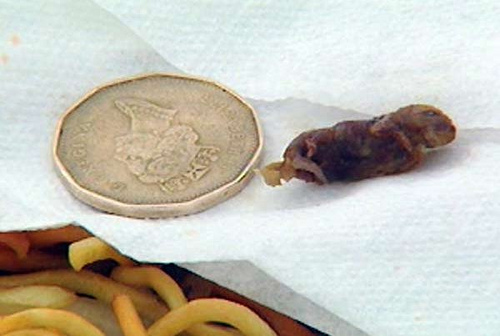 Tranh Minh Tran, of Kilburn, yesterday appeared in court charged with failing to comply with 19 conditions of the Australian and New Zealand Food Standard Code at his Woodville bakery.
Tranh Minh Tran, of Kilburn, yesterday appeared in court charged with failing to comply with 19 conditions of the Australian and New Zealand Food Standard Code at his Woodville bakery. Machinkowski. a 20-year-old Centennial College student, said in a blog post that he noticed the rodent while he and some friends were sitting in the coffee shop waiting for another friend to arrive.
Machinkowski. a 20-year-old Centennial College student, said in a blog post that he noticed the rodent while he and some friends were sitting in the coffee shop waiting for another friend to arrive. Belfast City Council staff carried out an inspection of the premises on 19 September, 2008 which uncovered "a number of serious breaches of food hygiene legislation.
Belfast City Council staff carried out an inspection of the premises on 19 September, 2008 which uncovered "a number of serious breaches of food hygiene legislation. the decade, Peyton Manning (right) versus Tom Brady (below, left).
the decade, Peyton Manning (right) versus Tom Brady (below, left).
 "The pictures are actually showing mice droppings in the food pantry, on the floor, on the shelves, on the counters, there’s been some on the carts. I brought these pictures forward because I felt people should know where their food’s coming from. It’s not safe."
"The pictures are actually showing mice droppings in the food pantry, on the floor, on the shelves, on the counters, there’s been some on the carts. I brought these pictures forward because I felt people should know where their food’s coming from. It’s not safe."